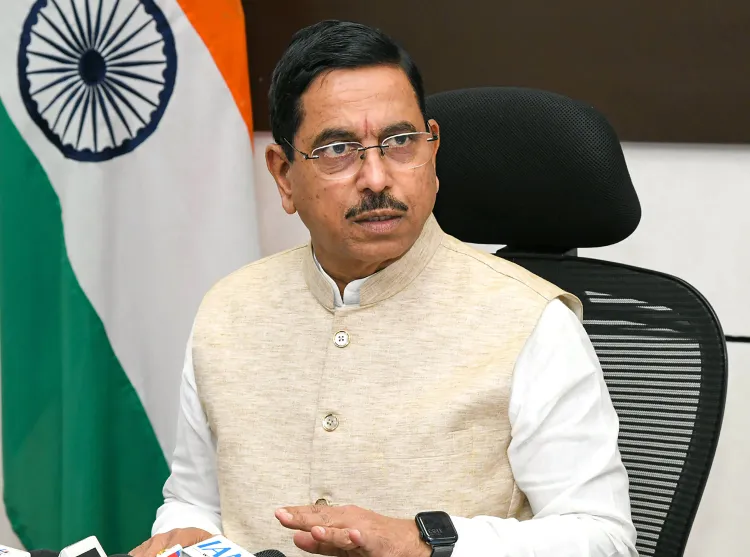Is Pralhad Joshi inaugurating a hi-tech EV testing facility in Kolkata?

Synopsis
Key Takeaways
- State-of-the-art EV testing facility inaugurated in Kolkata.
- Supports India's goal of 30% EV penetration by 2030.
- Enhances safety and performance of electric vehicles.
- Boosts user confidence in electric mobility.
- Reduces import dependency for EV components.
New Delhi, Sep 9 (NationPress) Aligning with India’s vision for sustainable mobility and reducing carbon emissions, Union Minister for New & Renewable Energy, Pralhad Joshi, will inaugurate a cutting-edge Electric Vehicle (EV) testing facility at the Alipore Regional Laboratory in Kolkata on Wednesday through a virtual platform.
This laboratory is outfitted with state-of-the-art infrastructure to perform essential tests on EV batteries and components. These include assessments of electrical safety, FCC/ISED compliance, functional safety, durability, as well as climatic tests (IP, UV, corrosion), and mechanical and material safety, focusing on flammability and glow wire tests.
The facility aims to offer reliable, internationally-recognized testing and certification for EV battery manufacturers, particularly in eastern India, thereby ensuring product safety, performance, and adherence to regulatory standards, as per an official announcement.
Serving as a national benchmark for EV quality assurance, this facility will aid manufacturers in early fault detection, thereby enhancing product reliability and ensuring compliance with stringent safety and performance regulations. Additionally, it is expected to significantly boost user confidence in EVs and expedite India’s transition to green mobility.
The establishment of this facility underscores the Government of India’s commitment to building a robust EV ecosystem, minimizing import dependency, and empowering local manufacturers with affordable testing services.
This advancement positions the NTH as a pivotal player in India’s shift towards sustainable transportation and a global leader in quality assurance infrastructure, according to the statement.
Electric Vehicles are crucial in the global shift towards eco-friendly mobility solutions, significantly contributing to reduced fossil fuel dependency and emissions.
India has set an ambitious target of achieving 30% EV penetration by 2030. To meet this goal, it is imperative that EVs and their components undergo stringent testing, validation, and certification to conform to both national and international standards, as stated.
Although EVs currently constitute a small segment of India’s passenger vehicle market — with penetration still in single digits — government initiatives are rapidly transforming the landscape. These targeted policies are progressively bridging the technology and cost divide between India and global leaders like China.
Initiatives introduced by the Central Government, such as FAME-II (Faster Adoption and Manufacturing of Hybrid and Electric Vehicles), with a budget of ₹11,500 crore, have already facilitated the introduction of over 16 lakh EVs by June 2025, including e-buses, e-two-wheelers, and e-three-wheelers. An additional ₹912.5 crore has been allocated for establishing 9,332 public charging stations, with nearly 8,900 already operational.
These endeavors are further supported by the Production Linked Incentive (PLI) schemes — ₹25,938 crore for advanced automotive technologies and ₹18,100 crore for Advanced Chemistry Cell battery storage — aimed at localizing EV components and reducing import dependency.








